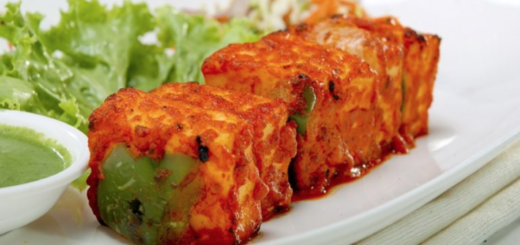8 Oxalate Rich Foods You Shouldn’t Avoid
Oxalate is an anti-nutrient formed when oxalic acid binds with minerals. Vegetables, fruits, and animal food rich in oxalic acid and minerals have high levels of oxalate. When consumed, they can form compounds like calcium oxalate and iron oxalate in human bodies. These are harmful compounds responsible for kidney stones, UTI infections, and other issues.
How Does Oxalic Acid Forms Oxalates?
The process starts with oxalic acids binding with minerals. In the human body, it starts in the gut. But sometimes it also happens in the kidney and urinary tract. Oxalates are harmful compounds and for this reason, they are flushed out in urine and stool. But sometimes oxalates aren’t flushed and are allowed to develop as stones like kidney stones and UTI infections. It is for this reason that people with kidney problems are advised to avoid oxalate rich foods.
Do you know vitamin C also can get converted into oxalate on getting metabolized?
Should I Avoid Oxalate Rich Foods?
People with kidney stones, UTI infections, or other issues related to oxalates should avoid consuming food items that have high levels of oxalates. But if you are a healthy person with no oxalate problem, you can eat oxalate rich food items for their mineral and other nutrients.
A high oxalate level in a food item is an indication that the food has a high level of minerals as well. For example, take spinach which is good for your overall health. It is also high in oxalate but you can keep consuming spinach until your body is flushing the oxalates out.
Before making an opinion on whether you should eat oxalate rich foods, you should first check which foods are rich in oxalates and what are their health benefits. Oxalate rich foods are widely consumed for their nutritional value. Also, you can take preventive measures for kidney stones and UTI infections.
Oxalate Rich Foods
Spinach

This green leafy vegetable is called a superfood because of its nutritional content. It is a storehouse of vitamins and minerals. It also contains plant compounds like Lutein, Nitrates, Quercetin, Kaempferol, and Zeaxanthin. But it is also high in oxalate compounds. A half-cup of cooked spinach contains 755 milligrams of oxalates.
Spinach is widely consumed for its health benefits which include good bone health, good eyesight, weight loss, reduced hypertension, improved brain function, and a boost in immunity.
Soy Products

If you are on a plant-based diet, you should include soy products in your diet to get protein and other nutrients. But you should also be careful about the oxalate content of soybeans. One cup of soy milk or yogurt can have up to 336 milligrams of oxalates per serving. Similarly, a 3-ounce serving of firm tofu has 235 milligrams of oxalate.
Soy products can reduce the risk of cardiovascular disease, stroke, coronary heart disease (CHD), and some cancers. Also, can improve bone health.
Almonds

Almonds are nutrient-rich nuts good for people of all ages, especially kids. They are high in antioxidants, vitamin E, protein, and fiber. But little do you know that they also have a high level of oxalate. One ounce of almonds (22 nuts) contains 122 milligrams of oxalates.
But almonds deliver a massive amount of nutrients not available in any other nut. Also, they are loaded with antioxidants and vitamin E. Eating almonds can assist with blood sugar control and blood pressure levels.
Potatoes

Potatoes contain antioxidants vitamins and minerals, including vitamin C, B6, and potassium. But they are also rich in oxalate content. A medium-baked potato has 97 milligrams of oxalates per serving. But much of the oxalate is found in the skin which also contains fiber and vitamins B and C.
Potatoes improve blood sugar control and digestive health. Another advantage of potatoes is they are naturally gluten-free. Also, they are incredibly filling. You won’t find any vegetable as versatile as potatoes because they can be consumed as baked, boiled, and fried.
Beets

Beets boast an impressive nutritional profile that includes protein, carbs, fiber, folate, manganese, copper, potassium, magnesium, vitamins B6 and C, and iron. But their oxalate levels are also high. A cup of beets contains 152 milligrams of oxalate. But considering their health benefits, they are consumed widely.
Beets can help keep your blood pressure in check. They can improve athletic performance. They can help fight inflammation and improve digestive health. They are also good for brain function. Delicious and easy to include in your diet, beets can give quick energy.
Navy Beans Are Oxalate Rich Food

Navy beans are replete with fiber and other necessary nutrients like protein, vitamin B1, magnesium, copper, manganese, and folate. They are both delicious and nutritious. But you should also know that they contain oxalate. A half-cup of cooked navy beans contains 76 milligrams of oxalate. But there is little to worry about if your body is flushing the harmful compounds out.
Navy beans boost energy levels and reduced the risk of cardiovascular diseases. They improve memory and aid diabetes treatment. If you are looking for weight loss, navy beans could be helpful. They can even improve your skin health.
Raspberries

Fruits also contain oxalates but most of them have low levels of oxalates. But raspberries are high in this harmful compound. A cup of ripened raspberries contains 48 milligrams of oxalate. But it doesn’t mean that you should avoid them.
Raspberries pack lots of nutrients including vitamins B, C, E, and K, manganese, calcium, magnesium, copper, iron, and potassium. They are low in sugar and rich in anti-aging antioxidants. Rich in fiber, raspberries could help control diabetes. Children are served raspberries as they sharpen their brains and memory.
Dates Are Oxalate Rich Food

Dates are known for their natural sweetness and rich flavor. Also, they are rich in all necessary nutrients. But at the same time, they also have high levels of oxalate. A piece of date contains 24 milligrams of oxalate. Dates protect heart health and control blood sugar. They are also good for your digestive health. You can even use dates as a sweetener in cooking and baking.
Disclaimer: The above information is for educational purposes only and the viewers are advised to consult their dieticians before adding any oxalate rich food to their diets.


